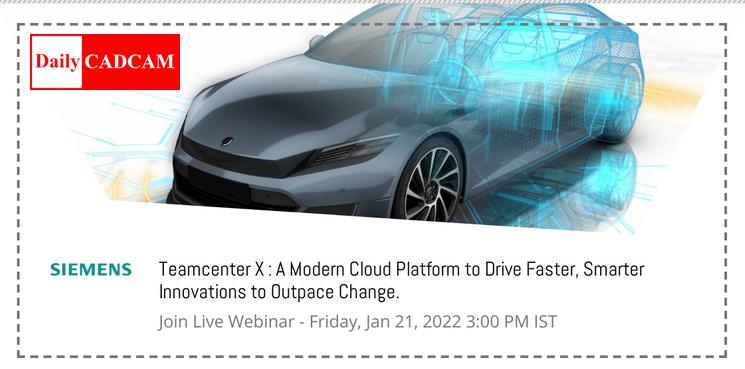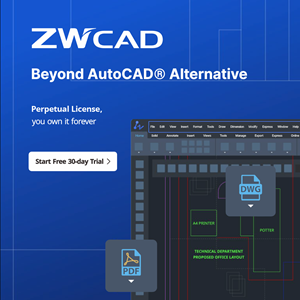PLM (Product Lifecycle Management) for EV OEMs and Startups!
India is most happening country in the world now in the automotive sector. According to research firms in December 2021 the overall EV sales in India record 240% increase YoY compared to the number recorded in December 2020. The Indian electric vehicle market was valued at USD 5.47 Billion in 2020, and it is expected to reach USD 17.01 Billion by 2026, growing at a CAGR of 23.47% over the forecast period (2021-2026).
The Indian Electric Vehicle (EV) Market is Segmented by Vehicle Type (Passenger Cars, Commercial Vehicles, Two Wheelers, and Three-wheelers) and Power Source Type (Battery Electric Vehicle, Plug-in Electric Vehicle, and Hybrid Electric Vehicle).
Last year the government of India has undertaken multiple initiatives to promote the manufacturing and adoption of electric vehicles, to reduce emissions pertaining to international conventions, and to develop e-mobility in the wake of rapid urbanization.
Electrification is now considered one of the biggest revolutions of the automotive industry. Many startups are trying their luck in this segment. In India we have around 200+ startups/OEMs in EV space trying hard to make impact with their vehicles.
While many companies died or were eaten along the way, some emerged as new, respectable e-brands, ready to put their prototypes nose-to-nose with the establishment. Most startups in India are owned by the recently passed engineering graduates, young engineers or by traditional automotive suppliers, vendors wanting to switch business. When it comes to traditional automotive OEMs, not all of them are interested in entering market in nascent stage some are also working on developing hybrid vehicles.

Most EV startups and their founders are having engineering background, they are familiar using 2D, 3D CAD tools to design the concept of their vehicle. Few are also working on simulation of components and working on developing battery packs and other components. As we know Startups have very limited resources and hardly get chances to follow trial and error methods, invest on R&D. As a result, digitalization becomes important factor to survive.
The EV market so far had a slower traction due to lack of quality product and experience, coupled with the lack of an ecosystem and the infrastructure that electric vehicles need to be supported with. However, with technological advancements and consequent cost optimization, the EV market is sure to increase confidence among the consumers because of a variety of choices available.
When we talk about 2W EV market in India, we can see few successful startups becoming the market leaders. They were able to ride the EV wave with their innovative design and refreshing approach to redefine the two-wheeler riding experience. They tried their best to enhance customer experience that is unparallel in the industry with the use of latest technologies like internet connectivity, use of electronics, software, generative designs, lightweight materials etc.
The automotive design process goes through various stages from concept sketching, 3D modeling, simulation, visualization and prototyping using different software at each stage. Most startups are doing great job at the design stages and are able to launch their prototypes by outsourcing various manufacturing tasks and using standard battery packs and drives available in market.
When founders are on mission to capture an ever-greater share of the rapidly growing Indian EV market. Electric vehicles are finding an increasing number of takers in India, especially driven by the surging demand for electric two-wheelers. They would have to overcome several critical business challenges. Company must be ready to accelerate product development and the manufacturing process so that it can bring new models to market quickly and meet market demand. Along with these challenges company needs to undergo robust testing and certifications from Government agencies (ARAI) for its role in the application, reliability, durability, safety, efficiency, etc. So, it becomes important to have a product management platform for better collaboration within the EV ecosystem. It is challenging task to handle large teams, legacy systems, massive amounts of data, complex business models, agendas, and multiple stakeholders.
There are numerous challenges that are faced by EV Startups and OEMs in present situation, and the financial impact appears to be the biggest hurdle. But with SaaS (software as a service) model pricing, companies are getting high-value software at a lower fixed cost and removing the risk of custom development or large IT projects; because the business model is simpler, data and teams are smaller, and there is a real opportunity to plan for scale and sustainability.
This is the area where Product Life Cycle (PLM) plays incredible role for EV OEMs and Startups. As emerging technologies continue to offer flexibility and SaaS pricing. PLM applications are now more accessible for SMEs. There are affordable solutions available in market but be sure that they will complement your workflow and not lead to another silo of information. You can start small, and as your company grows you can move up to the more robust system.
Product information is not only important to design teams, but also to everyone across a company. Everyone in a company needs to access the most up to date information whether that is in the office, at home or anywhere with internet access.
Cloud, SaaS PLM allows users to collaborate instantly throughout the product design and process planning of manufacturing and assembly processes and operations. PLM enables companies to manage information from the initial concept to manufacturing and after-market service. For EV companies it would also help in processing data of charging stations and batter management. All elements of product data (i.e. requirements, designs, development schedules, sourcing, etc.) are incorporated into the processes undertaken by sales, purchasing, design, engineering and manufacturing teams — no matter where they work in a global value chain.
PLM system with integrated quality management is prime requirement for the EV Companies. Most startups in EV space are either new to complete vehicle manufacturing or they are outsourcing manufacturing to other vendors. PLM solutions can help identify potential quality issues that may involve product data, engineering changes, documentation, corrective and preventive actions, supplier issues, customer complaints and training records. Getting access to quality data during the design helps in identifying trends and common issues and meet compliance guidelines.

Some of the benefits of PLM:
- Flexible, automated business processes
- Version control enabling BOM evolution and continuous process improvement
- Effective collaboration and communication across disciplines
- Improved productivity and minimized rework with visibility of up-to-date and accurate BOM information
- Optimized changed management process with a clear understanding of impacted data, users and processes
- Greater traceability for product changes and updates
- Reduced costs due to extensive re-use of documentation
- Maximized lifetime value of the product
PLM solutions geared to SME requirements can help identify potential quality issues that may involve product data, engineering changes, documentation, CAPA (corrective and preventive action), supplier issues, customer complaints/returns, etc. SME manufacturers have the need to access quality data during design to help better identify trends and common issues and meet compliance guidelines.
With the ever-greater focus on innovation and time-to-market agility, the challenges that were once stumbling locks for the automotive manufacturers are now bearing down on the EV OEMs and suppliers as they look forward to optimizing product development and engineering processes to gain competitive edge. Implementing PLM would help in improving operational efficiencies across the value chains. With integrations for PDM, IoT, ALM, ECAD, MCAD, ERP and more. So, gear up and try Cloud SaaS PLM now…
Author: Sachin Nalawade DailyCADCAM – sachin@dailycadcam.com
SIEMENS Teamcenter X – FREE TRIAL
If your company is looking forward to know more about Cloud Saas PLM #TeamcenterX, join us for the Live Webinar on Jan 21, 2022 at 3:00 PM IST featuring a special guest speaker from SIEMENS.
Register now – https://mailchi.mp/dailycadcam.com/eed






